


Israeli Public Is Concerned Over Budget Priorities as the War Continues
Written By: Daphna Aviram-Nitzan, Prof. Karnit Flug, Roe Kenneth Portal
This survey was conducted in order to assess public opinion regarding the preferred economic policy in light of the war in Gaza, to identify the main areas of concern to the public, and to examine the public’s views on various social issues.
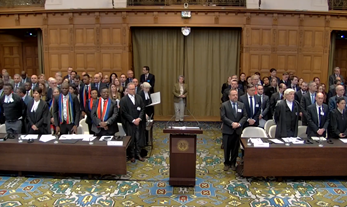
South Africa vs. Israel at the International Court of Justice: A Battle Over Issue-Framing and the Request to Suspend the War
Written By: Prof. Amichai Cohen, Prof. Yuval Shany
The International Court of Justice (ICJ) at the Hague held public hearings in the case against Israel for alleged violations of the Genocide Convention. In this essay we address three aspects of the case: the ways the parties framed the events, the request to suspend Israeli military operations, and the conditions for issuing provisional measures.
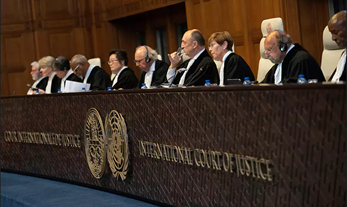
International Court of Justice in The Hague Genocide Proceedings -
Written By: Adv. Shlomit Ravitsky Tur-Paz
One of the claims brought forth in the Application against Israel that it is committing genocide against the Palestinians is that many senior members of the government made references to the biblical precept to wipe out the memory of the ancient Amaleks. This is my professional opinion on the meaning of these locutions and the use made of them in the Application.
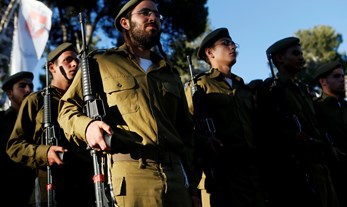
The Modern Haredi, As Envisioned by Rabbi David Leibel
Written By: Eliyahu Berkovits
Recently, a new answer to the dilemma of the 'modern Haredi' has been advanced enthusiastically by Rabbi David Leibel, one that maintains religiosity while increasing civic participation in the economy and in defense of Israel.
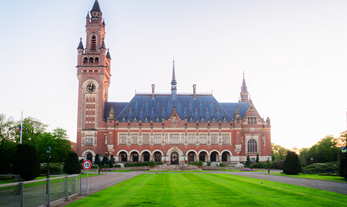
Explainer: South Africa’s Case Against Israel at the International Court of Justice
Written By: Prof. Amichai Cohen
The ICJ is hearing allegations that Israel has violated the Convention on the Prevention and Punishment of the Crime of Genocide. What is the ICJ? How is the government responding? What are the implications for the war against Hamas and Israel’s international standing?
All the answers in a special IDI explainer.
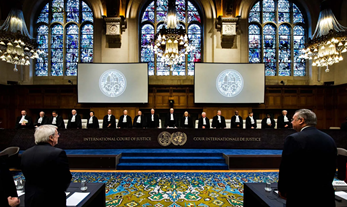
The ICJ Hearings on Israel and the War on Hamas
On January 11th, the court will begin by hearing South Africa’s oral argument, with Israel presenting its counter argument on January 12th.
What does the international law state and what are the possible implications of these proceedings on the ongoing war and Israel’s international standing? We’ve compiled a shortlist of important information you should have.
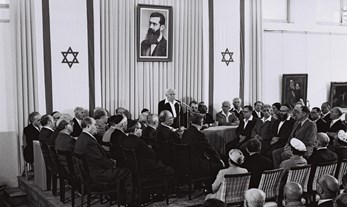
Can a unified Israel rise from the ashes of the Hamas war?
Written By: Yohanan Plesner
While we entered this war more divided than ever – and with large numbers even saying that they believed civil war to be a possibility – Israelis today are united in their determination to win.
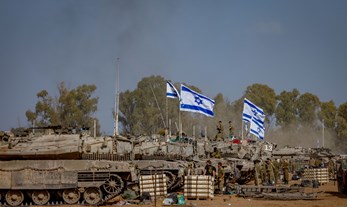
Most Israelis Oppose Meeting US Demands to Shift to New Phase of War
Written By: Prof. Tamar Hermann, Dr. Or Anabi
About two-thirds (66%) of Israelis say they do not think Israel should agree to US demands to shift to a phase of the war with a reduced heavy bombing in populous areas. 75% of Jewish Israelis oppose meeting the demands, compared to only 21% of Arab Israelis.
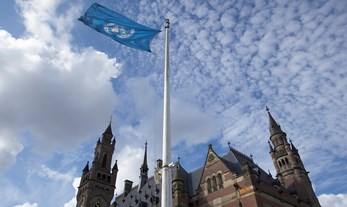
Selective Use of Facts and the Gaza Genocide Debate
Written By: Prof. Yuval Shany, Prof. Amichai Cohen
The recent application by South Africa to the International Court of Justice brought against Israel under the Genocide Convention illuminates how international law and international institutions can be employed to address the Israel-Hamas war.

Israel’s Unfinished Democracy
Written By: Yohanan Plesner
As the international community ponders Gaza’s post-war future, Israelis are increasingly focused on what the ‘day after’ holds for their politics and society.
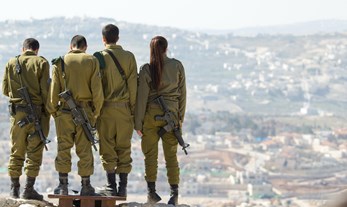
Where was God on October 7? A different perspective
Written By: Prof. Benjamin Porat
The horrific October 7 massacre undoubtedly surpasses the savagery of any other wave of terrorism Israel has ever seen. In the face of barbarity, we are called to challenge prevailing conventions, to abandon simplistic arguments, and to move toward more complex ideas that may light the path for some of us.
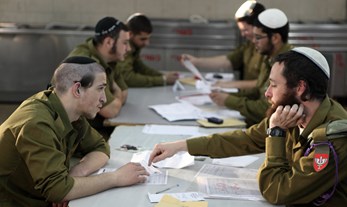
A New Social Contract with the IDF? On the Benefits of Waiting to Decide
Written By: Prof. Amichai Cohen, Dr. Gilad Malach
The need for expanded IDF service is clear—but the options for achieving this are rife with political contention and economic consequences. The time to rethink long-term security arrangements is after the fog of war lifts, under newly elected leaders with broad public legitimacy.
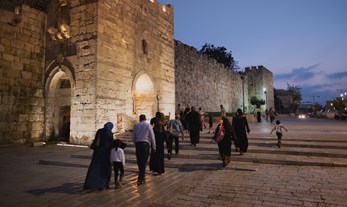
Most Arab Israelis: October 7 Attack Does Not Reflect Islamic, Palestinian, or Arab Society Values
Written By: Dr. Adam Asad, Yaron Kaplan
56% of all Arab Israelis say the attack by Hamas on October 7 does not reflect Arab society, the Palestinian people, and the Islamic nation. 33% say it does and 11% are unsure.
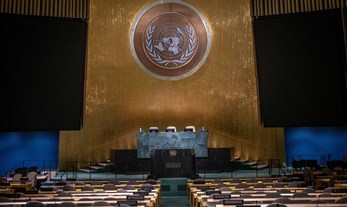
Israel's War in Gaza and International Law
Written By: Prof. Amichai Cohen, Adaya Kisos
International law is a normative system that regulates the conduct between states, organizations recognized by international law and at times, individuals. This explainer presents an overview of international law in conflict and its application in Israel's war against Hamas.

Even on the Right, Israelis Want Elections Immediately After the War
Written By: Prof. Tamar Hermann, Dr. Or Anabi
Two thirds of Israelis do not think that the government currently has a clear plan of action for the next day and the majority, even on the right, believe elections should be held as soon as the war ends. Even so, no significant movement is currently indicated between the political blocs.
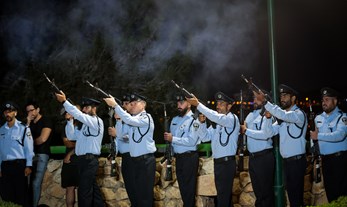
A Blow to Internal Security Governance in Israel
Written By: Adv. Mirit Lavi, Dr. Yael Litmanovitz
During the October 7th attacks, the home front became the front line with Israelis attacked in their own homes. This new reality led not only to a beefed-up presence of police and military forces in public spaces, but to civilian-based security initiatives in many communities. Finding the right balance between the police and civilians is imperative to providing much-needed safety and security for all Israelis.

The Hostage Situation in Gaza and the Responsibilities of the International Community
Written By: Prof. Amichai Cohen, Dr. Shelly Aviv Yeini, Prof. Tamar Hostovsky Brandes
This article discusses the responsibilities of the international community with respect to the ongoing war in Gaza, and particularly focusing on responsibilities with regard to the hostage situation.
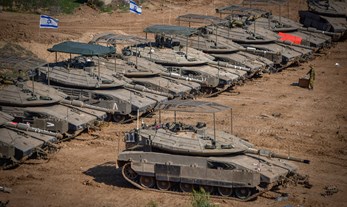
Israelis Sharply Divided on the Question of a Two-State Solution in Return for US Assistance
Written By: Prof. Tamar Hermann, Dr. Or Anabi
Among Jewish Israelis, 75% on the Left support making progress toward a two-state solution to the conflict in return for American assistance, compared to 45% in the Center and only 21% on the Right.
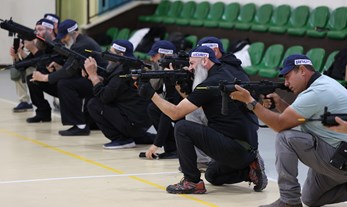
Explainer: Civilian Defense Squads in Urban Settings
Written By: Adv. Mirit Lavi, Dr. Yael Litmanovitz
In recent weeks, since the outbreak of the war in Gaza, some 800 new civilian defense squads have been set up throughout Israel. Each squad consists of local residents who serve as civilian operational reserve forces, available for rapid deployment to assist national security forces during security events and emergency situations.
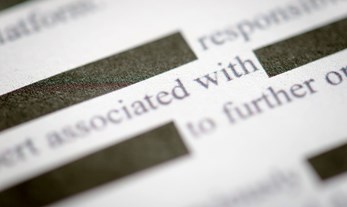
Enough with the Censorship?
Written By: Dr. Guy Lurie, Dr. Tehilla Shwartz Altshuler
Attempts by the Prime Minister to influence the Chief Censor may indicate a concerning erosion of the Military Censor’s independence and professionalism. Clearly, state secrets must be protected, especially during war, but there are better ways for this to be accomplished, more suited to a democratic state.

Slamming wartime misinformation while shaking hands with the man responsible for it
Written By: Dr. Tehilla Shwartz Altshuler
Israeli leaders are calling for the end of disinformation in the war while shaking hands with the man behind so much of it - Elon Musk. The current war has turned X into a human behavior experiment, and we are the lab rats.

The Worthy Clause in the Nation-State Law
Written By: Dr. Amir Fuchs
The Nation-State Law includes a clause that declares the state's obligation to care for all Jewish people and all Israeli citizens whenever they are in jeopardy due to either their Jewish identity or Israeli citizenship. This does not impose a legal obligation, but it does reflect this special value which must not be lost during this war.
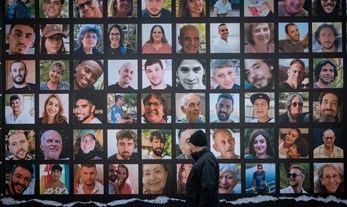
Overwhelming Majority of Jewish and Arab Israelis: The Release of all Hostages is a Goal of Importance
Written By: Prof. Tamar Hermann, Dr. Or Anabi
IDI's fifth War in Gaza survey finds that among Jewish Israelis, toppling Hamas and releasing the hostages are pivotal war-goals. The majority of respondents do not think that the government currently has a clear action for the day after the fighting ends, and there is rising support (56%) for an amendment to the Nation-State Law, to safeguard equality for non-Jewish citizens.
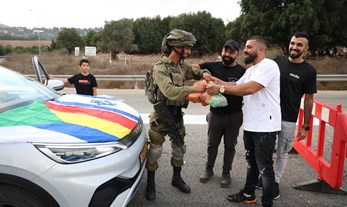
Amend the Nation-State Law. Now.
Written By: Prof. Suzie Navot
Israel's non-Jewish minorities—particularly those who are fighting and dying for the State of Israel—are worthy of appreciation and recognition, not separately, but as equals. The solution is to amend the Nation State Law, not to pass a new, separate basic law as is currently under consideration.
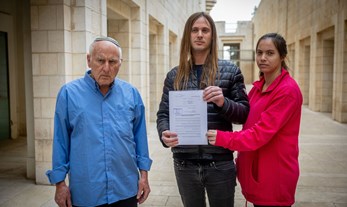
Does the High Court of Justice Intervene in Decisions to Release Prisoners?
Written By: Dr. Moran Kandelshtein-Haina
Appeals to the HCJ to intervene in decisions relating to the release of prisoners are fairly common, but the Court has repeatedly rejected these appeals, noting that on issues of national defense and diplomacy, the bounds for judicial oversight are particularly narrow.
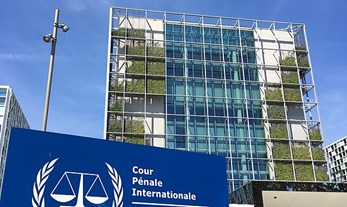
International Law "Made In Israel" Vs. International Law "Made For Israel"
Written By: Prof. Amichai Cohen, Prof. Yuval Shany
Tendentious interpretations of international law are not surprising considering the high emotions surrounding the long and bloody Israeli-Palestinian conflict. However, to serve its purpose guiding the conduct of States and retain a high degree of legitimacy, international law must serve as a common legal language.
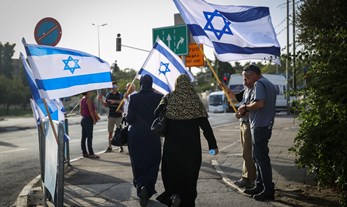
Challenges and Threats: Arab Society in Israel During the War in Gaza
Written By: Dr. Adam Asad
Conciliation between Jews and Arabs in Israel is not just a moral imperative, but also a necessary condition for maintaining peace and stability in the country.
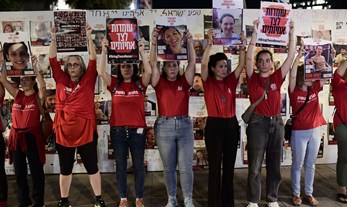
Women in War Under International Law
Written By: Adv. Anat Thon Ashkenazy
Now, when it is clear that Hamas’s murderous attack was unprecedented in its extreme violence, including sexual violence, the relevant international bodies—such as the UN Security Council, UN Women, and the International Red Cross—must respond to these incidents.

Israel's War Cabinet: A Brief History of War Powers and Institutional Ambiguity
Written By: Prof. Amichai Cohen, Prof. Yuval Shany
The Israeli war cabinet and the complex institutional structure related to war informs greatly on Israel’s decision-making.
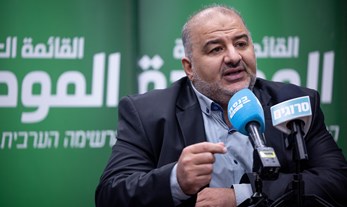
On a tightrope: Israel’s Arab citizens and the War Between Israel and Hamas
Written By: Dr. Arik Rudnitzky
The political mainstream in Arab society identifies with the Palestinian cause, namely the struggle for a two-state solution and peace between Israel and the Palestinians. The vast majority of Arab citizens strongly criticizes Hamas’ practices and completely rejects Hamas’ militant approach to the Israeli-Palestinian conflict.

